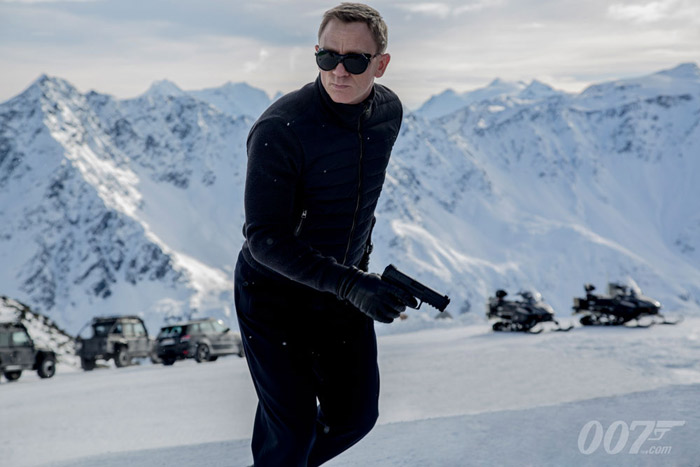When Skyfall came out in 2012, it gave the James Bond franchise a 21st century upgrade, focusing on modern issues and distancing itself from the goofiness that defined the brand in the more recent films. Under the direction of Sam Mendes, Spectre, the 24th addition to the collection, attempted to bring back some of that goofiness while still maintaining serious undertones. Unfortunately, the result is more of a disjointed combination that quickly jumps from serious drama to Bond being locked in a Austin Powers-esque torture contraption. The weak script makes the 148-minute running time feel endless, and is ultimately a disappointing farewell for what is rumoured to be Craig and Mendes’ final Bond film.
Spectre’s strongest scene is its opening. Set in Mexico City during a Dia de los Muertos festival, the film opens with a masked Bond stalking and taking out a target, while simultaneously destroying half a block of buildings all in one brilliant continuous film shot. These actions result in Bond being suspended and having to work—with the help of Moneypenny (Naomie Harris), Q (Ben Whishaw), and Madeleine Swann (Léa Seydoux)—behind MI6’s back in order to discover more about the shadowy “Spectre” organization. Eventually he must stop their evil plans, which involve the current hot topic of mass surveillance. Meanwhile, back in London, the film follows C (Andrew Scott), who is in the late stages of constructing a giant surveillance centre in London that he believes will make the ‘Double-O’ program obsolete. Meanwhile, MI6 command, M (Ralph Fiennes) tries his best to stop Spectre and keep the program alive.
The head of Spectre, Oberhauser (Christoph Waltz), serves as the main antagonist in the film. Waltz tends to play very similar characters in every movie he’s in, but without the strong writing that came with his most notable roles such as Quentin Tarantino’s Inglourious Basterds and Django Unchained, Waltz performance feels unexceptional. As for the rest of the acting, the performances, while not poor, are far from show-stopping. Craig returns as the slightly more emotional mass murderer that has defined his character in the past; Seydoux plays the typical Bond girl, who falls for the helpless love interest role before the end of the film. The one standout is Jesper Christensen, who returns to his role of Mr. White from Casino Royale and Quantum of Solace, and makes the most dramatic scene in the film.
It’s also hard to ignore the blatant misogyny that’s become commonplace in Bond films. In early stages of the film, it seems that they might have finally cast a love interest for Bond that’s more age appropriate, unfortunately, Lucia (Monica Bellucci) who’s actually four years older than Craig, only makes one real appearance in the film to serve as a sex object for Bond. Quickly, Bond is back to the standard woman who is 20 years his junior. This is a shame as it could have been a great way to update a franchise and bring it further into the 21st century.
This isn’t to say that Spectre is all bad: The action sequences are undeniably epic, while the cinematography and soundtrack are both well done; The range of global settings from Morocco, to Rome, and back to London all serve as good backdrops to the action.
Spectre attempts to tie together all the storylines from previous Daniel Craig Bond films, while also harking back to the older, more goofy films—ultimately, it does neither of these particularly well. More conviction within the acting, a stronger script, and an overarching better storyline would have been necessary to raise the film even remotely close to the standard or captivation level of previous Craig Bond films. Ultimately, Spectre is a signal that it’s time to move onto a new Bond, and take the series in a new direction.








